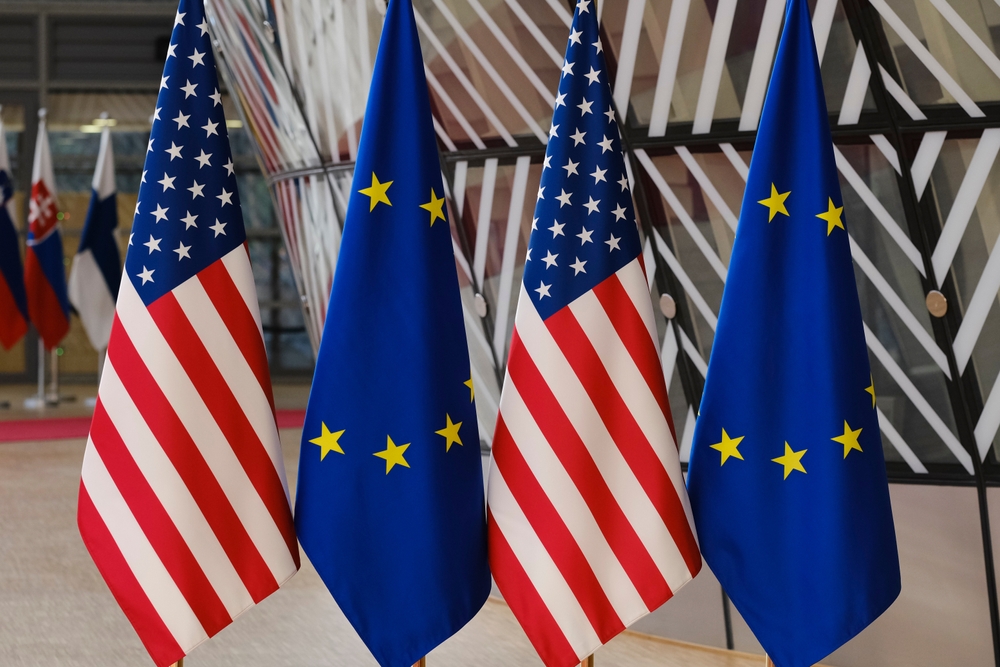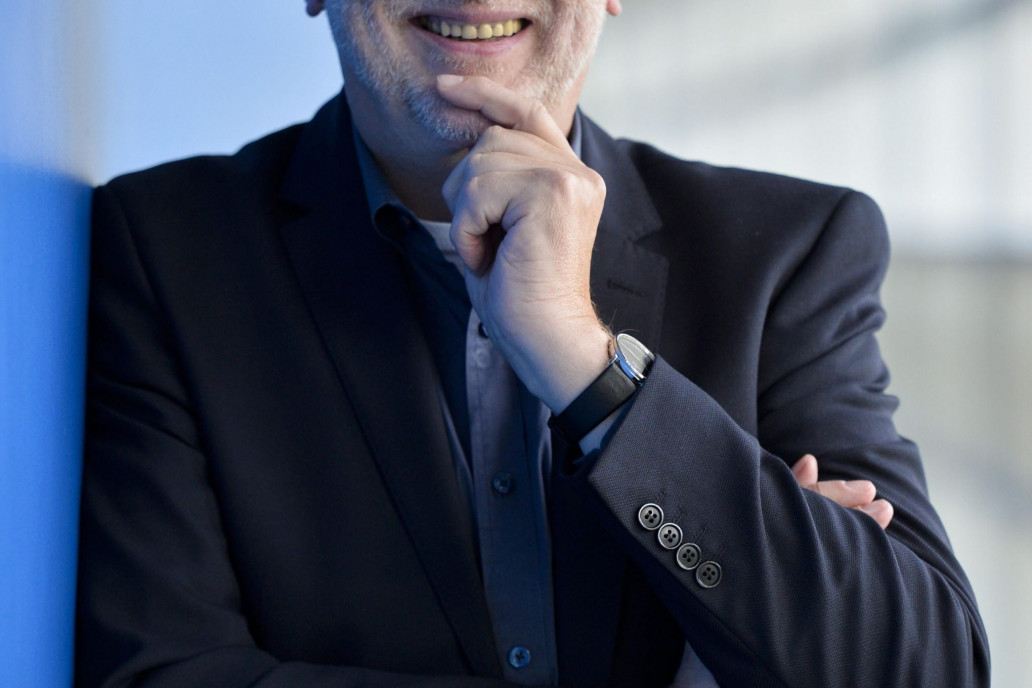Part 2: Conclusion and perspectives
Part 1 offered an overview of the challenges Europe is facing today, 80 years after the Second World War, as seen from the perspective of the 80th European Forum Alpbach. The conclusion of this broad, bird’s-eye assessment was unambiguous: for Europe, the time has come to invest systematically in the future.
Experts across almost all sectors of development agreed on this point. The reasons why this demand is now being voiced so strongly are manifold. Futures no longer exist in isolation, nor are they just the wishes of specific interest groups. They are increasingly becoming a matter of social integration and cohesion, as recent major crises, including the Covid-19 pandemic, have shown. Futures are no longer an exercise in pleasant speculation; they are becoming a central economic driver. This is demonstrated, for instance, by the programme development of Harvard University in Boston, the world’s top-ranked university. Harvard is regarded as a pioneer in the institutionalisation of futures. Since the early 2000s, it has not hosted just one, but several specialised programmes in this field, including the Digital Futures Consortium (until 2010), the Remodeling Futures Program, the integration of futures into its leadership curriculum, and courses on decision-making and problem-solving.
As future competence becomes part of the basic qualification of leaders, the very nature of future work is changing. Until now, it has often focused on technical possibilities within individual sectors. In the coming years, however, it will evolve into an ongoing, holistic effort of strategic and socio-political understanding. The work of understanding the future must now take place continuously. It cannot be completed. It has to be renewed constantly through dialogue between politics, business and civil society. The development of an autonomous future competence that is not dependent on other geopolitical regions will also shape the evolution of Europe’s civil society, which is of particular importance to the continent.
To fulfil the core demand of the 80th European Forum Alpbach, to give Europe new energy through “more future”, the coming years must focus primarily on seven key areas:
-
First, the societal negotiation of competing visions of the future.
-
Second, the scientific study of futures.
-
Third, public dialogue on futures acceptance, so that citizens can co-shape ideas and plans and connect to them emotionally.
-
Fourth, work on the shared imaginative foundation of the future. What autocracies instrumentalise, democracies can use positively under the name “imaginal politics” or “world-generation”.
-
Fifth, futures casting and futures staging, that is, the effective staging of futures in order to spark public interest and active participation.
-
Sixth, making policy with futures in mind. Whether politics acts responsibly with foresight or relies on unfunded promises. This concerns the political culture of the future and ultimately a social contract on what an ethics of futures should be.
-
Seventh, strengthening future competence through innovation. Embedding innovation efforts more systematically into possible, probable or desirable futures, supported by broadly networked “future maps”. In specialist terms, this is known as “forefront mapping”, a concept being advanced primarily by European researchers.
Anyone who integrates these seven dimensions of futures understanding and futures competence into a practical programme of education and training for politics, business, science, and society will be well prepared for the years ahead. All of these dimensions ultimately converge into a coordinated competence framework that connects major global developments between present and future to both public and private awareness. This awareness work also serves intergenerational justice. The experienced of today and the shapers of tomorrow meet in the space of the future, and both should be included equally. By its very nature, the future does not belong to today’s generations, but to those who come after.
However, for Europe to become strengthened by the future in this way, three pragmatic preliminary tasks must be completed.
First, a public debate on the future-orientation of education and training. The changing demands of our time call for long-overdue reforms that structure and future-proof these systems.
Second, using holistic, scientifically grounded futures work to take the wind out of populism. Populism, like the new nationalism, thrives on its undeserved dominance of imagination politics. It selects individual scenarios, simplifies and absolutises them, while deliberately ignoring others, thereby colonising people’s perspectives. Since expectations about the future play an increasingly important role in voting behaviour and political attitudes, they cannot be left to those who manipulate them with half-truths and fear. Serious actors in society must not speak only of the present while abandoning the future to the unserious.
Third, strengthening Europe’s border, mediation and exchange regions through futures dialogue. In these culturally overlapping areas, new forms of “knowledge diplomacy” can emerge, inspiring and advancing European integration on the ground. It is often easier to speak about futures in the plural than about the present in the singular, because futures appear less threatening precisely because they do not yet exist. This allows for open creativity, comparison and even constructive disagreement.
The conclusion?
Europe needs a new, systematic, long-term offensive in the field of futures. This will elevate regions, minorities and edge-communities, enriching the future discourse with broader perspectives. As one of the world’s wealthiest transnational communities, Europe has every reason to become a global leader in humane and humanist future anticipation. This requires institutionalising futures thinking in a stable, long-term way so that it can reinvent itself continuously.
Some steps in that direction have already begun. One example is the mapping of existing competence approaches in Europe, which is helping to strengthen an emerging intra-European network of futures initiatives. A good starting point was the May 2024 report of the EU-funded platform “Futures4Europe”: Showcasing Perspectives: A Stocktaking of R&I Foresight Practices in Europe. Following such big-picture studies, the core maxim increasingly applies not only to elites but to society at large: competence is the key to the future, and the future is the key to competence.
What lies ahead?
According to EU veteran Jean-Claude Juncker, who opened the 2025 Forum in Alpbach, Europe’s current leadership class possesses many positive and progressive qualities: global, transnational and multipolar awareness, built on inter- and trans-disciplinary education, and a natural grasp of complexity, often unconsciously drawing from systems thinking and even cybernetics. But Juncker also warned of impatience, techno-naivety and a lack of flexibility in future thinking. As Mario Draghi similarly noted in Rimini in summer 2025: Europe has little power internationally, yet wants everything immediately, increasingly turning to artificial intelligence for advice instead of experienced people.
Juncker and Draghi both called for an end to political short-termism and the growing reliance on chatbots. What Europe needs today is “long breath”: patience, and a genuine engagement with futures that integrates major human questions in locally rooted, interdisciplinary and solidaristic ways. Imagination and human creativity must go hand in hand with the new generativity of AI.
At Alpbach, on the 80th anniversary of Europe’s self-reflection, the consensus was clear: those who engage with the future in a way that reflects complexity, avoids ideological bias and speaks to the societal centre may not provide the one meaning, but surely provide more meaning, and more substance for Europe. That pays returns not only economically and socially, but above all, humanly.
For today’s and tomorrow’s Europe, continuity, stability and security depend on how the continent reinvents itself and how it positions itself toward possible, probable or desirable futures. Spontaneously or with preparation, chaotically or coherently, with blind techno-faith or in a balanced human-technological way. The balance between future and present will also shape the future relationship between democracy and populism on the continent.
That is why, as the European Forum Alpbach teaches, Europe would be well advised to treat futures more decisively than before as a shared rational project, negotiated between people and technology, in order to be prepared for tomorrow.
The full article in German is available here.
 In 2025, Roland Benedikter was a member of the jury for the Euregio Young Researchers' Award at the European Forum Alpbach. He is UNESCO Chair in Anticipation & Transformation and co-director of the Centre for Advanced Studies at Eurac Research in Bolzano, as well as a full member of the Association of Italian UNESCO Chairs ‘Rete delle Cattedre UNESCO Italiane’ (ReCUI) and the European Academy of Sciences and Arts. From 2019 to 2023, he was a member of the BMBF Future Circle for the German Federal Government, from 2024 to 2025 a member of the Scientific Advisory Board for the Dubai Global 50 Future Opportunities Report 2025, and since 2025 he has been a member of the Board of Trustees of the Forum for Sustainable Management in Munich. He is co-editor or advisory board member of the journals New Global Studies (de Gruyter), Harvard International Review (Harvard), Studi Politici (Sapienza Università di Roma I), Attualità Pedagogiche (Università degli Studi di Salerno) and the Brill book series Global Populisms.
In 2025, Roland Benedikter was a member of the jury for the Euregio Young Researchers' Award at the European Forum Alpbach. He is UNESCO Chair in Anticipation & Transformation and co-director of the Centre for Advanced Studies at Eurac Research in Bolzano, as well as a full member of the Association of Italian UNESCO Chairs ‘Rete delle Cattedre UNESCO Italiane’ (ReCUI) and the European Academy of Sciences and Arts. From 2019 to 2023, he was a member of the BMBF Future Circle for the German Federal Government, from 2024 to 2025 a member of the Scientific Advisory Board for the Dubai Global 50 Future Opportunities Report 2025, and since 2025 he has been a member of the Board of Trustees of the Forum for Sustainable Management in Munich. He is co-editor or advisory board member of the journals New Global Studies (de Gruyter), Harvard International Review (Harvard), Studi Politici (Sapienza Università di Roma I), Attualità Pedagogiche (Università degli Studi di Salerno) and the Brill book series Global Populisms.
Copyright Header Picture: Shutterstock_Mike Mareen
Könnte Sie auch interessieren
2. Februar 2026


